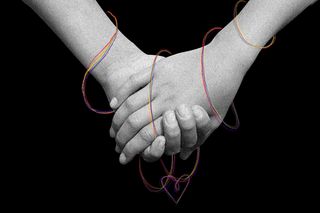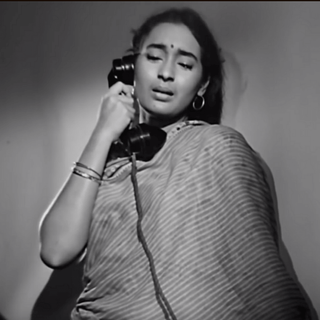
What Queerness Can Teach Us About Reimagining Relationships Beyond Rigid Conventions, Marriage
Through a constant perpetuation of what an ideal relationship looks like, society has decreed other forms of love less valuable.

Last month, Anjana Harish, a twenty-one-year-old bisexual woman, was subjected to the archaic practice of ‘conversion therapy’ by her family, leading to her death by suicide. Conversion therapy involves inhumane efforts to alter a queer person’s sexual orientation or gender identity, and is linked to the historical characterization of queerness as medically or psychologically ‘abnormal.’ Inherent in the practice is the idea that there is a certain kind of desire that is normative and legitimate, while other forms are clinical conditions to be remedied. In a culture rife with respectability politics, which desires and relationships do we legitimize?
Gayle Rubin’s work on the hierarchical valuation of sex acts explores how certain kinds of sex are socially sanctioned and considered appropriate, while others are considered ‘deviant’ or immoral, and are subject to scrutiny. To summarize Rubin, ‘good sex’ takes place at home, between two married, able-bodied heterosexual persons and is procreative in nature. Within the Indian context, of course, caste and religion play a role in determining what kind of desires are acceptable and what aren’t, further complicating the hierarchy, and making the people in the ‘good sex’ category all the more scarce and more powerful.
What we learn from Rubin’s research is that sex is, in fact, political. Institutions such as religion, education, and the medical sciences influence and enforce this hierarchy, serving and maintaining power in the hands of the small majority who lie within the ‘good sex’ category.
Related on The Swaddle:
This Is What It’s Like to Come Out as Queer in India
The kind of relationship that is most acknowledged and incentivized – socially, legally, and financially – is marriage. While pop culture frames marriage as being about love or care for a partner and children, historically speaking, the institution came into being for a very practical purpose: to ensure that a man’s children were in fact his true biological heirs, so they could safely inherit his property. Scholars have recognized that in India particularly, marriage is not a personal matter, and that arranged marriages are vehicles to unite and maintain power within upper-caste families.
Feminist movements have critiqued the institution of marriage as a tool for social control, which coerces women into doing unpaid labor in the name of familial care, and normalizes sexual violence against them. The Indian legal system still does not recognize marital rape, despite horrifying statistics showing that a woman is raped by her husband every three seconds. Additionally, women home-makers account for the second-highest percentage of suicide victims in India, often owing to family- and dowry-related issues.
Mass media, through its consistent perpetuation of ideas about what ideal desire or relationships look like, works in tandem with other institutions to maintain these power hierarchies. How many stories have we seen in which a cis-heterosexual, able-bodied boy meets cis-heterosexual, able-bodied girl, who undergo tumultuous times together and transcend their difficulties for their journey to culminate in the ultimate happiness – which is, of course, marriage? This idea not only silences all narratives involving marginal identities, but also over-values romantic love and implicitly decrees other forms of love as less valuable.
The idea of there being a single, true lifelong love has been marketed to us so vehemently that it causes us to stay with partners we may no longer be happy with, because if marriage is the ultimate success, break-ups are undoubtedly failures. How different would our ideas of relationships and love be, if we were to simply acknowledge that they did not have to last forever to be successful and meaningful?
Related on The Swaddle:
What It’s Like to Be Openly Queer and Exist Within an Indian Family
It’s not entirely radical to imagine alternatives to the conventional cis-het idea of a relationship and family, because there are already those who practice them. Research indicates that queer couples often make deliberate choices to reject heterosexual norms, since they view them as constraining and sexist. They make conscious decisions to incorporate only those conventional elements that they consider important to their relationship, while also creating their own scripts that prioritize individuality and equality in their dynamic. Similarly, some queer (and heterosexual) people choose not to entirely reject the institution of family as oppressive, but create their own families of choice. Family to us is “all relationships that are actively and voluntarily maintained.” Chosen families are characterized by enduring mutual care and support, and can include a wide variety of relationships, from friends, partners, ex-partners to animals. This way of living chips away at the dominance of the cis-heterosexual relationship and nuclear-family ideal, and could result in a greater collective emphasis on other forms of intimacy and love, such as friendships.
Another alternative way of living – seen as radical in Indian culture – is simply being single. It’s a growing trend in many countries, and U.S. statistics show that by the time today’s young adults reach the age of 50, a quarter of them will have never married at all. Far from being a life of isolation, people who choose to be single engage in activism, care for aging friends and relatives, and cultivate broad and diverse social support systems. Research indicates that people who are single spend more time connecting with and helping others than their married counterparts. People who rely on multiple friends and family members for emotional support are more satisfied in their life than people who choose to lean on just one person.
According to Judith Butler, ‘queering’ is to contest the validity of sexual legitimacy. It is important for us to ‘queer’ the systems and institutions around us that use power hierarchies to rigidly shape our ideas of what love and desire can and should look like. We need to imagine what it would look like if we were to step away from the scripts that are dictated to us and write the narrative of our lives ourselves. Perhaps, in this way, we will adopt ways that are more adaptable and kind, more thoughtful and liberating.
Farah Maneckshaw is an independent journalist and psychologist who works at Ummeed Child Development Center. She has done her Masters in Clinical Psychology from the Tata Institute of Social Sciences.
Related


Is This Normal? “I Hate Roller Coasters”
